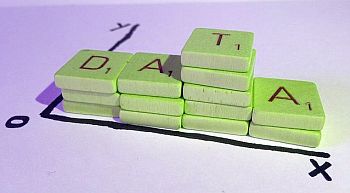How scientific infrastructure providers currently support RDM in the social sciences
Posted: December 15th, 2015 | Author: Sven | Filed under: Conference, Workshop | Tags: RDM, roles for libraries | Comments Off on How scientific infrastructure providers currently support RDM in the social sciences Though some months have passed, again I would like to draw our reader’s attention on a workshop that took already place in June in London. Organised by nereus, the European network of leading social science libraries, the workshop “Open Data, Restricted Data and the Library Role – Practical Cases in Economics and Social Sciences” featured presentations from several notable institutions who discussed their experiences of establishing research data management and RDM services. These presentations highlighted the various demands researchers face in this area and also the role(s) especially libraries can play in the administration or management of open and restricted research data.
Though some months have passed, again I would like to draw our reader’s attention on a workshop that took already place in June in London. Organised by nereus, the European network of leading social science libraries, the workshop “Open Data, Restricted Data and the Library Role – Practical Cases in Economics and Social Sciences” featured presentations from several notable institutions who discussed their experiences of establishing research data management and RDM services. These presentations highlighted the various demands researchers face in this area and also the role(s) especially libraries can play in the administration or management of open and restricted research data.
To me, it was a quite interesting and fruitful workshop, because I learned how other scientific infrastructure providers and libraries are dealing with the upcoming requests in the field of research data management. But first things first:
 In his introduction (“Open science, open data, researchers attitudes and the library role“) to the workshop theme, Dr. Paul Ayris from UCL pointed to a EU-report called Science 2.0: Science in transition. The report mentions several barriers for Open Science for individual researchers, e.g. concerns about quality assurance (peer review) and the lack of credit-giving (career promotion). Agreement for policy actions among researchers can mainly be found for raising awareness, the development of research infrastructures and for open access to publications and data.
In his introduction (“Open science, open data, researchers attitudes and the library role“) to the workshop theme, Dr. Paul Ayris from UCL pointed to a EU-report called Science 2.0: Science in transition. The report mentions several barriers for Open Science for individual researchers, e.g. concerns about quality assurance (peer review) and the lack of credit-giving (career promotion). Agreement for policy actions among researchers can mainly be found for raising awareness, the development of research infrastructures and for open access to publications and data.
Another resource he recommended is the LERU Roadmap for Research Data, of which the key messages are:
- Each LERU university needs a Research Data Management Strategy
- Researchers should have Research Data Management Plans
- LERU universities need to bring stakeholders together
- Benefits of ‘open data’ for sharing and re-use should be advocated and explored
Open science leads to greater transparency and can speed up discovery of solutions to societal grand challenges (healthcare, environment, etc.). But not all data can be open, e.g. because of security, data protection or commercial funders.
Paul also pointed to the (ten) LIBER recommendations for libraries to get started with research data management and eleven case studies also published by LIBER.
Finally, Paul had a suggestion for all workshop attendees: as librarians, collect case studies: the good and the bad. And with these, fuel the debate on open science!
 In the second talk of the day, I had the chance to speak about our own projects and services in RDM-support. I started with a short introduction of our institution, because ZBW is quite unique in the field of libraries and scientific infrastructure providers: ZBW is the world largest specialist library for economics AND we are not part of a university.
In the second talk of the day, I had the chance to speak about our own projects and services in RDM-support. I started with a short introduction of our institution, because ZBW is quite unique in the field of libraries and scientific infrastructure providers: ZBW is the world largest specialist library for economics AND we are not part of a university.
Therefore we have a discipline specific mission.
Our general approach in RDM is characterised by a few principles:
- We act in close cooperation with the economic research,
- We orient ourselves to the needs of the community and seek constant feedback from the target group,
- We work with rather than (only) for researchers,
- We act with a strong subject-specific point of view, without neglecting overall developments and discussions,
- With our projects and services, we focus on organisations/institutions rather than on single researchers,
- We think it us useful to have a division of responsibilities in RDM, wich are based on complementary skills.
Subsequently, I presented some of our core activities in RDM-Support – basically EDaWaX, the DOI-registration agency da|ra, the research data repository SowiDataNet (in German only) and our guide book on research data in the social sciences (in German only) and concluded with some lessons learned.
 The third talk was held by Laurence Horton, London School of Economics (LSE). He gave us some information on setting up a research data management support service at LSE. Currently the LSE data library has 2-3 staff members and their role is to provide institutional support like to manage data resources and to run a data advice service.
The third talk was held by Laurence Horton, London School of Economics (LSE). He gave us some information on setting up a research data management support service at LSE. Currently the LSE data library has 2-3 staff members and their role is to provide institutional support like to manage data resources and to run a data advice service.
The LSE RDM service consists of a data policy, service promotion, training, assisting with data management plans and their implementation, providing working and preservation storage and assisting with metadata and data discovery. LSE found that a RDM service needs to provide local, national and European support in the form of research infrastructures.
Currently, there are three levels of RDM-support at LSE:
- Basic: DMP review; RDM website; RDM drop-in sessions
- Mid-level: Metadata support; Facilitation data deposit; Consultations
- High level: Re-use infrastructure; Data curation
For the future, LSE plans to closely work with the DCC on repository options, provide training for academic service librarians and offer access to administrative data.

The talk of Sarah Cadorel and Cynthia Pedroja (Science Po, Paris) offered a lot of information on beQuali – an infrastructure project for re-utilisation of qualitative research in the social sciences. beQuali is a study of (qualitative) research data (re-)usage in the social sciences. The project establishes an overview of data management projects in France, investigates the latest developments in Europe and assembles a data audit framework for the Sciences Po Laboratory (available in French, only!).
beQuali targets on qualitative data that consists of complex materials. Most often, such data needs to be contextualised. beQuali does it by providing enriched metadata and interviews with researchers. First of all beQuali collects data, and classifies the data. Subsequently, the data will be edited and preserved.
beQuali adheres to a selective dissemination of the project results. Criteria for dissemination are reusability, cost and availability of the researchers. Dissemination is managed by contracts between the data repository and the researcher(s) who produced the study. In addition, also users have to sign a contract to be able to access and re-use the data.
beQuali offers restrictive access to data, but it offers open access to all metadata – therefore researchers can at least determine the content of the data held by beQuali.
More information on the project is available on the project’s website.

Last but not least, Paul Plaatsma (Erasmus University Rotterdam) presented the work of the Erasmus Data Service Centre. The EDSC provides access to financial and social science databases and gives individual support and workshops for students and staff of the Erasmus University Rotterdam. Currently up to 5 FTEs are working in this specialised unit. Due to the increasing importance of quantitative research the University Library in collaboration with the Schools of Management (RSM) and Economics (ESE) started up the EDSC in 2006. In addition the EUR owns a specialised data centre with 2 FTE personnel. The EDSC provides many services: They support researchers in finding content or data, help with manuals, guides, how-to’s, FAQ’s and provide workshops and individual support. Also special support is provided for lecturers and researchers. Furthermore, EDSC offers information an access to Bloomberg products (Bloomberg Class) and offers a datalab.
In my opinion, the EDSC is a good example of a data service center, which is based at a university.
In a nutshell, the workshop in London showed different ways, how libraries and other scientific infrastructure providers handle with the challenge of getting involved in research data management. Of course this workshop only showed a few examples from libraries in Europe, but it showed the different paths and the different importance seen by universities and the heads of the library. As mentioned by Paul Ayris, also LIBER and many libraries are on the move to find suitable solutions to support science and research. And these discussions and different models of research data management support will last for many years.
All slides of these talks are available on the website of the LIBER2015 Conference. A detailed report of the workshop’s results is available here, also a summary of the break-out-session following the talks.
Photo: “Research Data Management” by janneke staaks on flickr.com (with own adaptions). License: CC-BY-NC 2.0
Icons made by Alessio Atzeni from Flaticon. License: CC-BY 3.0







